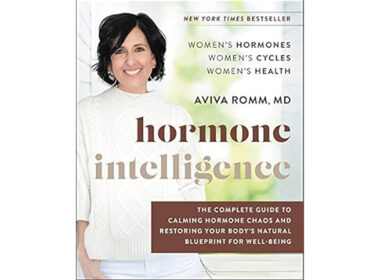Did you know that a natural safeguard against preeclampsia is regular exposure to the semen of the baby’s father?
That’s right; research has found that seminal fluid from a recurring male partner might play a crucial role in building up immunological tolerance in a woman—a tolerance that is necessary for carrying a healthy pregnancy—long before the sperm has even found an egg. And, as it turns out, this immunological tolerance might have some pretty fascinating implications for a woman’s risk of developing preeclampsia (PE).
Preeclampsia is a poorly-understood, potentially deadly disorder that affects pregnant women and new mothers all over the world—which makes anything that appears to prevent preeclampsia something worth studying more closely.
What is preeclampsia?
Preeclampsia is a serious pregnancy complication that usually occurs after 20 weeks gestation. It is characterized by symptoms of high blood pressure, severe headaches, shortness of breath, rapid weight gain, water retention, proteins found in urine, and upper abdominal pain. If left untreated, preeclampsia can be fatal for both mother and baby. The only current “cure” for preeclampsia (PE) is delivery of the baby, which isn’t always ideal in a mother who hasn’t reached full term yet. While researchers think poor placenta formation and uterine inflammation are important precipitating factors in the development of PE, they aren’t exactly sure what is responsible for the development of those factors. Good diet and moderate exercise are recommended to help prevent preeclampsia, but even these do not seem to be enough for some women.
In their 2017 article in the journal Frontiers in Medicine, UK researchers Louise Kenny and Douglas Kell point out that since the 1990s, studies have found that repeated exposure to the same man’s semen seems to have a preventative effect against preeclampsia for a woman during any pregnancies fathered by that partner [1]. Since at least 2001, researchers have discussed an “emerging hypothesis” that repeated semen exposure plays a key role in the induction of maternal immune tolerance during pregnancy [2]. Kenny and Kell remark that that hypothesis is now “a well-established fact”; a fact that now informs their hypothesis that PE is a disease beginning from an infectious source, which can either be inhibited or triggered by the microbes found in semen.
What all this means is that, if a woman is at risk for preeclampsia, and she is sexually active with one partner and wants to bear his children in the future, having barrier-free intercourse in the long-term is healthier for her future pregnancy outcomes. For such a couple, using condoms, diaphragms, or spermicidal contraceptives would deprive her of the preeclampsia-reducing properties of her partner’s semen. As a result, such a couple could benefit from using a fertility awareness method as an effective form of natural family planning, instead of contraceptive barrier methods, to better serve their health needs.
Unpacking the role of semen in the development or prevention of preeclampsia
To begin to understand the technical aspects of how semen can help reduce risk of preeclampsia, we must start by understanding how pregnancy creates a certain “immunity conundrum.” Biologically speaking, a fetus is a “foreign subject,” and contains alloantigens that under any other circumstances would cause a woman’s immune system to go into attack mode. At the time the placenta develops, however, there is a maternal immune response that increases her body’s tolerance to the foreign party, i.e., the fetus. Essentially, this allows the fetus to grow and material to flow freely from the fetus to the maternal bloodstream without triggering the mother’s immune defense system. Thus, the mother’s body gives the fetus a biological “hall pass.”
Semen has its own complex microbiome that we are only just starting to understand. However, we do know that semen contains protective and immune-tolerance inducing substances, such as antimicrobial peptides (AMPs). AMPs contain secretory leukocyte protease inhibitors and semenogelins, which play important roles in the immune system by warding off viruses and bacteria. We also know that semen contains transforming growth factor B, which is a key agent in skewing the mother’s immune response toward acceptance of the fetus during a pregnancy.
Therefore, as Kenny and Kell posit, there is reason to believe that the link between lower incidence of preeclampsia in women who carry pregnancies with partners to whose semen they have been repeatedly exposed, is due to her body’s “familiarity” to the proteins and microbes found in a specific partner’s semen. And, in general, it seems that this familiarity leads to improved immunotolerance during a future pregnancy with that partner. Thus, it seems that “familiar” semen exposure may help prevent preeclampsia.
So semen might prevent preeclampsia? What else can it do?
As the Frontiers in Medicine article notes, the potentially preventative effect of “familiar” semen is perhaps the reason why PE risk is higher in donor sperm and donor egg pregnancies, as well as in pregnancies occurring in new couples or in couples using condoms. It is also why each time a woman switches sexual partners, she seems to lose those protective effects, and her risk for PE goes up, as the clock “resets” until she can build back up an immunotolerance to a new partner (or rather, that new partner’s microbes).
We also know that semen exposure may have other benefits beyond potentially preventing preeclampsia; in her 2016 Natural Womanhood article about how condoms can affect fertility awareness effectiveness rates, Molly Daley points out that:
Semen contains an entire host of beneficial vitamins, minerals, and other compounds, including zinc, ascorbic acid (Vitamin C), blood-group antigens, calcium, chlorine, cholesterol, choline, citric acid, creatine, fructose, glutathione, lactic acid, magnesium, nitrogen, phosphorous, potassium, sodium, sorbitol, and vitamin B12. It has long been known that the vagina absorbs many of these seminal components [3], and as it happens, many of them are known to be beneficial to a woman’s reproductive health… Semen contains many mood-elevating compounds such as endorphins, estrone, prolactin, oxytocin, thyrotropin-releasing hormone, and serotonin, leading to theories that semen might be a natural “mood-booster.” One famous study from 2002 found some evidence to support that theory: women who had condomless sex exhibited fewer depressive symptoms than women who had sex with condoms [4]. The presence of oxytocin, the so-called “bonding hormone” (as well as other hormones) has led to theories that seminal absorption binds the couple to each other more fully. In a similar vein, research has found that men and women find sex more pleasurable without the use of condoms [5], and, of course, studies have shown a correlation between sexual satisfaction and marital satisfaction [6].
More research is needed on the nature of the link between semen exposure and preeclampsia
The Frontiers in Medicine article notes the corollary that if microbes in semen are responsible for beneficial effects, they could also be responsible for harmful effects. Semen, after all, is not sterile, and not unlike the gut, it can contain advantageous microbes as well as disadvantageous ones. Kenny and Kell stress that there is a great need for improved microbial testing in males to ascertain the implications of the hypothesis that semen exposure can prevent preeclampsia, including whether or not the seminal microbiome is impacted by diet and other environmental factors. In any case, the “familiarity” of a woman’s body with a given man’s sperm seems to be the key factor. And, in general, it seems that the more exposure, the lower the risk.
While more research needs to be done on the reasons for the connections between semen, immunotolerance, and preeclampsia risk and development, the proposed link is nevertheless a huge breakthrough on a common (though poorly understood) condition that threatens many women and their babies across the globe. It’s incredible to think that as tiny as these microbes may be, they could be playing a huge role in maternal health outcomes around the world.
References
[1] Kenny L, Kell D. Immunological Tolerance, Pregnancy, and Preeclampsia: The Roles of Semen Microbes and the Father†. Front Med (Lausanne). 2018;4. doi:10.3389/fmed.2017.00239 [2] Robertson S, Sharkey D. The role of semen in induction of maternal immune tolerance to pregnancy. Semin Immunol. 2001;13(4):243-254. doi:10.1006/smim.2000.0320 [3] Drummond Robinson G. Absorption from the Human Vagina. BJOG: An International Journal of Obstetrics and Gynaecology. 1925;32(3):496-504. doi:10.1111/j.1471-0528.1925.tb06358.x [4] Gallup GG Jr, Burch RL, Platek SM. Does semen have antidepressant properties? Arch Sex Behav. 2002 Jun;31(3):289-93. doi: 10.1023/a:1015257004839. PMID: 12049024. [5] Milhausen R, McKay A, Graham C et al. Do Associations Between Pleasure Ratings and Condom Use During Penile–Vaginal Intercourse Vary by Relationship Type?: A Study of Canadian University Students. The Journal of Sex Research. 2017;55(1):21-30. doi:10.1080/00224499.2017.1298713Additional Reading:
Is Using Condoms with Fertility Awareness a Good Idea?
Addressing Our Maternal Mortality Crisis with Fertility Awareness
What You Need to Know if You’re Pregnant or Nursing During the COVID-19 Pandemic
The Affordable, Effective Alternative to IVF No One Talks About







